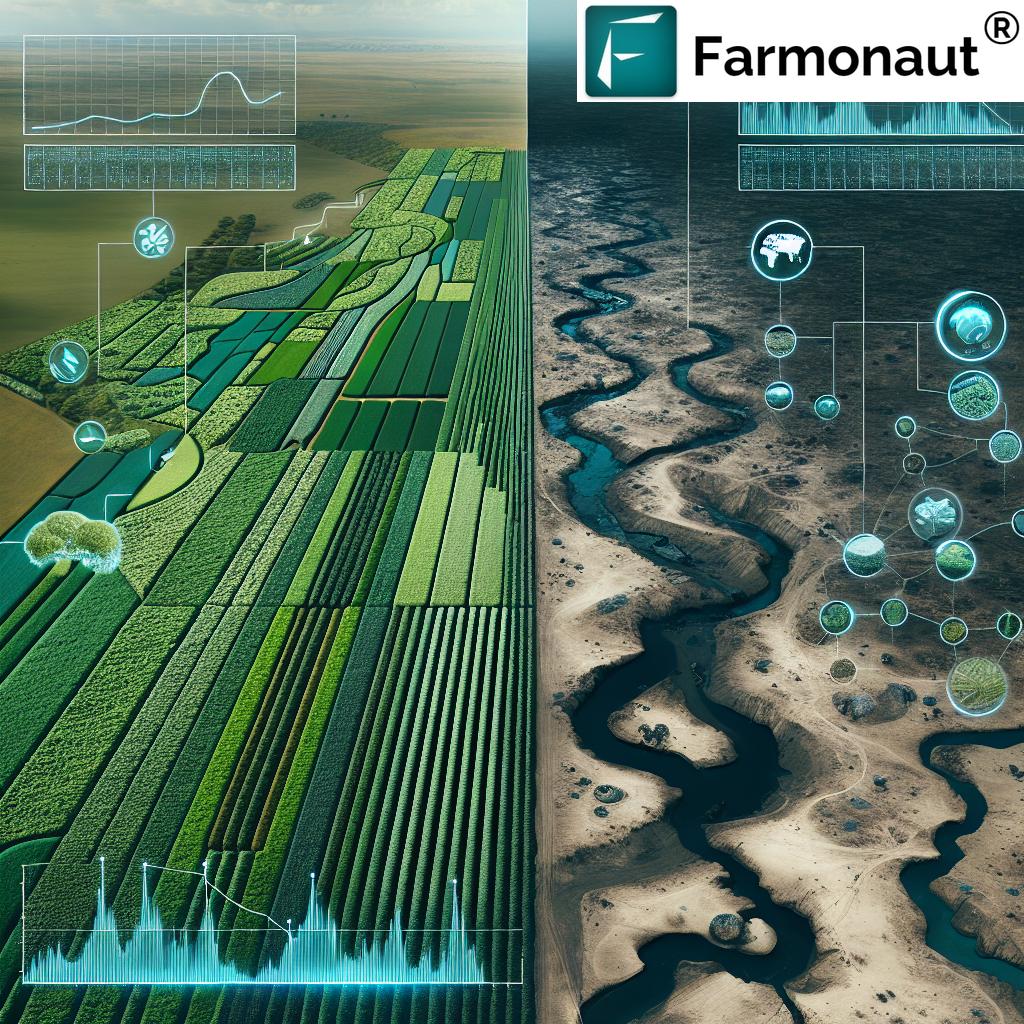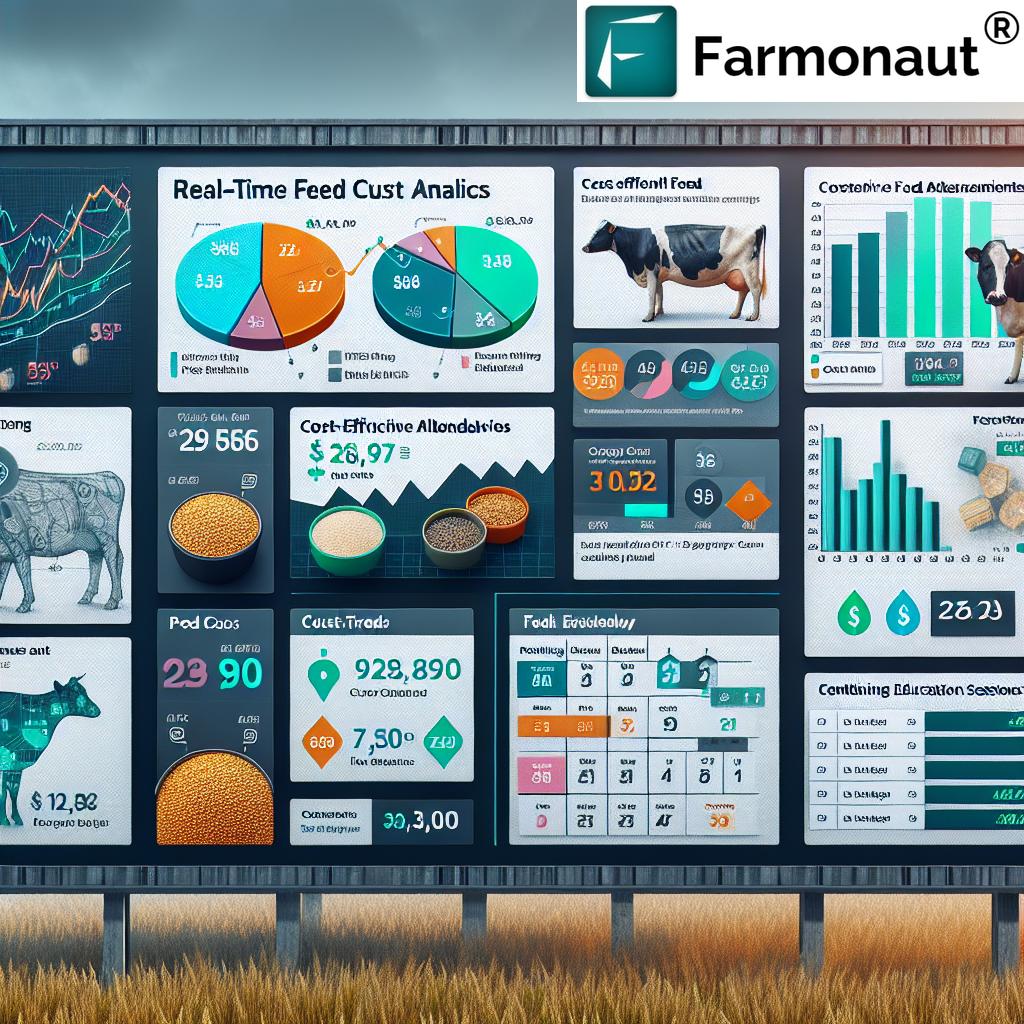Mastering Farm Succession: Essential Strategies for Seamless Generational Transitions in Modern Agriculture
“Over 70% of family farms fail to transition successfully to the next generation.”
In the ever-evolving landscape of agriculture, farm succession planning has become a critical aspect of ensuring the longevity and success of family farms. As we delve into this complex topic, we’ll explore the challenges and strategies for transitioning family farms to the next generation, while incorporating modern farming techniques and precision agriculture technology.
The Importance of Farm Succession Planning
Farm succession planning is more than just passing down land and equipment; it’s about preserving a legacy, maintaining productivity, and ensuring the future of agriculture. With the average age of farmers increasing and the number of young people entering farming declining, effective succession planning has never been more crucial.
- Preserves family heritage and agricultural traditions
- Ensures continuity of farm operations
- Facilitates knowledge transfer between generations
- Minimizes potential conflicts and legal issues
As we navigate through this comprehensive guide, we’ll explore various strategies and technologies that can help make farm succession planning a smoother process.

Embracing Modern Farming Techniques
One of the key factors in successful farm succession is the integration of modern farming techniques. These advancements not only improve efficiency and productivity but also make farming more appealing to the younger generation.
Precision Agriculture Technology
Precision farming has revolutionized the agricultural landscape, offering tools and technologies that enhance decision-making and resource management. At Farmonaut, we understand the importance of these technologies in modern farming.
“Precision farming techniques can increase crop yields by up to 30% while reducing input costs by 20%.”
- Satellite-based crop health monitoring
- AI-driven advisory systems
- Precision fertilizer systems
- Advanced seeding and tillage equipment
These technologies not only improve farm productivity but also make the transition to the next generation smoother by reducing the physical demands of farming and increasing its technological appeal.
Long-Term Planning and Business Management
Successful farm succession requires a solid foundation in business management principles. Treating the farm as a business entity is crucial for its long-term sustainability and attractiveness to the next generation.
Key Aspects of Farm Business Management
- Financial planning and budgeting
- Risk management strategies
- Marketing and diversification
- Human resource management
Incorporating these business practices not only improves the farm’s current operations but also makes it more appealing and manageable for the next generation.
Agricultural Asset Management
Effective management of agricultural assets is crucial for successful farm succession. This includes:
- Land and property management
- Equipment and machinery maintenance
- Livestock management (if applicable)
- Technology and software assets
By implementing robust asset management practices, farms can ensure that they remain productive and valuable for generations to come.

Generational Farming Strategies
Transitioning a farm to the next generation requires careful planning and execution. Here are some key strategies to consider:
Gradual Involvement of Younger Family Members
One of the most effective ways to ensure a smooth transition is to involve the younger generation in farm operations gradually. This approach allows for:
- Knowledge transfer over time
- Development of management skills
- Building confidence in farm operations
- Fostering a sense of ownership and responsibility
Start by assigning specific tasks or areas of responsibility to younger family members, gradually increasing their involvement as they gain experience and knowledge.
Open Communication and Family Meetings
Regular family meetings and open communication are essential for successful farm succession. These meetings should:
- Discuss the farm’s current state and future plans
- Address concerns and expectations of all family members
- Make collective decisions about the farm’s future
- Establish clear roles and responsibilities
By fostering an environment of open communication, families can avoid misunderstandings and conflicts that often derail succession plans.
Legal Frameworks for Farm Succession
Implementing the right legal structures is crucial for smooth farm succession. Here are some options to consider:
Creating Living Trusts
Living trusts can be an effective tool for farm succession planning. They offer:
- Smooth transfer of assets without probate
- Flexibility in asset management
- Potential tax benefits
- Privacy in estate matters
Consult with a legal expert to determine if a living trust is suitable for your farm succession plan.
Forming Limited Liability Companies (LLCs)
Creating an LLC for your farm business can provide several benefits:
- Protection of personal assets
- Flexible management structure
- Easier transfer of ownership
- Potential tax advantages
An LLC structure can be particularly beneficial when transitioning a farm to multiple family members.
Leveraging Technology in Farm Succession
Modern technology plays a crucial role in making farms more attractive and manageable for the next generation. At Farmonaut, we offer a range of solutions that can aid in this transition:
- Satellite-Based Crop Health Monitoring: Our advanced technology provides real-time insights into crop health, helping farmers make informed decisions.
- AI Advisory System: Our Jeevn AI system offers personalized farm advice, making farm management more accessible to the next generation.
- Blockchain-Based Traceability: Enhance transparency and trust in your farm operations with our blockchain solutions.
- Fleet and Resource Management: Optimize your farm’s logistics and reduce operational costs with our management tools.
These technologies not only improve current farm operations but also make the transition to the next generation smoother by reducing the learning curve and increasing efficiency.
Explore our range of solutions:
Creating Effective Succession Plans
Developing a comprehensive succession plan is crucial for the smooth transition of farm operations. Here are key steps to consider:
- Assess the Current Situation: Evaluate the farm’s assets, liabilities, and overall financial health.
- Define Goals and Objectives: Clearly outline what you want to achieve with the succession plan.
- Identify Potential Successors: Determine who is interested and capable of taking over the farm.
- Develop a Timeline: Create a realistic timeline for the transition process.
- Consider Financial Implications: Address issues like retirement income, tax implications, and estate planning.
- Seek Professional Advice: Consult with lawyers, accountants, and financial advisors specializing in farm succession.
- Implement and Review: Put the plan into action and review it regularly to ensure it remains relevant.
Remember, a successful succession plan should be flexible and adaptable to changing circumstances.
Upcoming Trends in Precision Farming
As we look to the future of agriculture, several emerging trends in precision farming are shaping the industry:
- Enhanced Fertilizer Systems: More precise and efficient application of nutrients.
- Autonomous Machinery: Self-driving tractors and harvesters reducing labor needs.
- Drone Technology: For crop monitoring, spraying, and mapping.
- AI and Machine Learning: For predictive analytics and decision support.
- Internet of Things (IoT): Connecting various farm devices for better data collection and analysis.
These advancements not only improve farm efficiency but also make agriculture more appealing to tech-savvy younger generations.
Comparison of Farm Succession Planning Strategies
| Strategy | Key Benefits | Potential Challenges | Suitability Score (1-10) |
|---|---|---|---|
| Gradual Involvement of Younger Generation | Smooth knowledge transfer, builds experience | May take longer, potential generational conflicts | 9 |
| Creating Living Trusts | Avoids probate, offers flexibility | Complex setup, ongoing management required | 8 |
| Forming LLCs | Asset protection, easier ownership transfer | Legal complexities, annual fees | 7 |
| Implementing Precision Farming Technologies | Increases efficiency, attracts younger generation | Initial investment costs, learning curve | 9 |
| Long-term Business Planning | Ensures sustainability, clear direction | Time-consuming, requires regular updates | 8 |
Overcoming Common Challenges in Farm Succession
Farm succession planning often faces several challenges. Here are some common issues and strategies to address them:
- Emotional Attachment: The older generation may struggle to let go. Solution: Start discussions early and focus on the farm’s legacy.
- Financial Constraints: Buying out family members can be costly. Solution: Consider phased buyouts or alternative financing options.
- Skill Gaps: The next generation may lack certain skills. Solution: Implement mentoring programs and encourage ongoing education.
- Family Dynamics: Conflicts between family members can derail succession plans. Solution: Use neutral third-party mediators when necessary.
- Changing Market Conditions: The farm’s viability may change over time. Solution: Regularly review and adapt the succession plan.
Addressing these challenges head-on can significantly improve the chances of a successful farm transition.
The Role of Education in Farm Succession
Education plays a crucial role in preparing the next generation for farm management. Consider the following educational opportunities:
- Agricultural degree programs
- Workshops and seminars on farm management
- Internships or apprenticeships on other farms
- Online courses in business management and agriculture
- Technology training, particularly in precision farming tools
Encouraging ongoing education ensures that the next generation is well-equipped to handle the complexities of modern farming.
Financial Planning for Farm Succession
Effective financial planning is crucial for successful farm succession. Consider the following aspects:
- Retirement Planning: Ensure the retiring generation has sufficient income.
- Tax Considerations: Understand and plan for potential tax implications of asset transfer.
- Insurance: Review and update life and disability insurance policies.
- Debt Management: Develop strategies to manage existing farm debt.
- Investment Diversification: Consider off-farm investments to spread risk.
Consult with financial advisors experienced in farm succession to develop a comprehensive financial plan.
Embracing Sustainable Practices in Farm Succession
Incorporating sustainable farming practices can make the farm more attractive to the next generation and ensure its long-term viability. Consider:
- Implementing soil conservation techniques
- Adopting water-efficient irrigation systems
- Exploring renewable energy options
- Practicing integrated pest management
- Considering organic or regenerative farming methods
These practices not only benefit the environment but can also improve farm profitability and appeal to environmentally conscious consumers.
Leveraging Technology for Efficient Farm Management
Modern technology can significantly ease the operational demands of farming, making it more attractive to the next generation. At Farmonaut, we offer various tools to enhance farm management:
- Satellite-Based Crop Monitoring: Real-time insights into crop health and growth patterns.
- AI-Powered Advisory: Personalized recommendations for crop management.
- Weather Forecasting: Accurate predictions to aid in decision-making.
- Resource Management Tools: Optimize the use of water, fertilizers, and other inputs.
By integrating these technologies, farms can become more efficient, profitable, and appealing to tech-savvy successors.
Explore our API solutions for developers:
Frequently Asked Questions
- When should I start planning for farm succession?
It’s never too early to start. Ideally, begin planning at least 5-10 years before the intended transition. - How can I involve my children in the farm without forcing them?
Expose them to various aspects of farming, encourage their interests, and allow them to make choices about their level of involvement. - What legal structures are best for farm succession?
Common structures include family trusts, LLCs, and partnerships. The best choice depends on your specific situation. - How can precision farming technologies help in succession planning?
These technologies can make farming more efficient and appealing to younger generations, easing the transition process. - What if none of my children want to take over the farm?
Consider options like selling the farm, leasing it out, or transitioning to a non-family successor.
Conclusion
Mastering farm succession is a complex but crucial process for the future of agriculture. By embracing modern farming techniques, implementing sound business practices, and leveraging technologies like those offered by Farmonaut, farms can successfully transition to the next generation. Remember, every farm is unique, and succession plans should be tailored to individual circumstances. With careful planning, open communication, and a willingness to adapt, family farms can continue to thrive for generations to come.
















